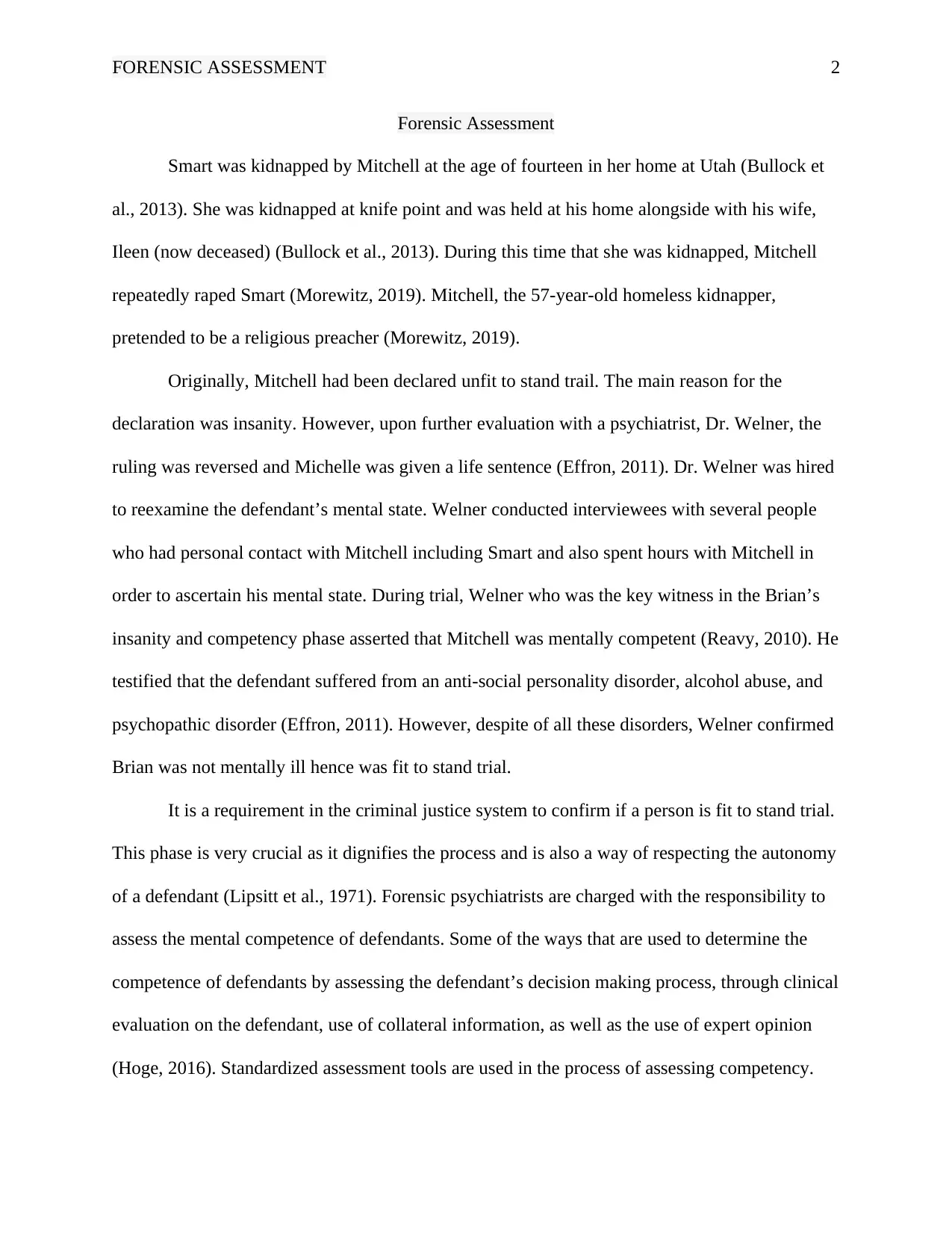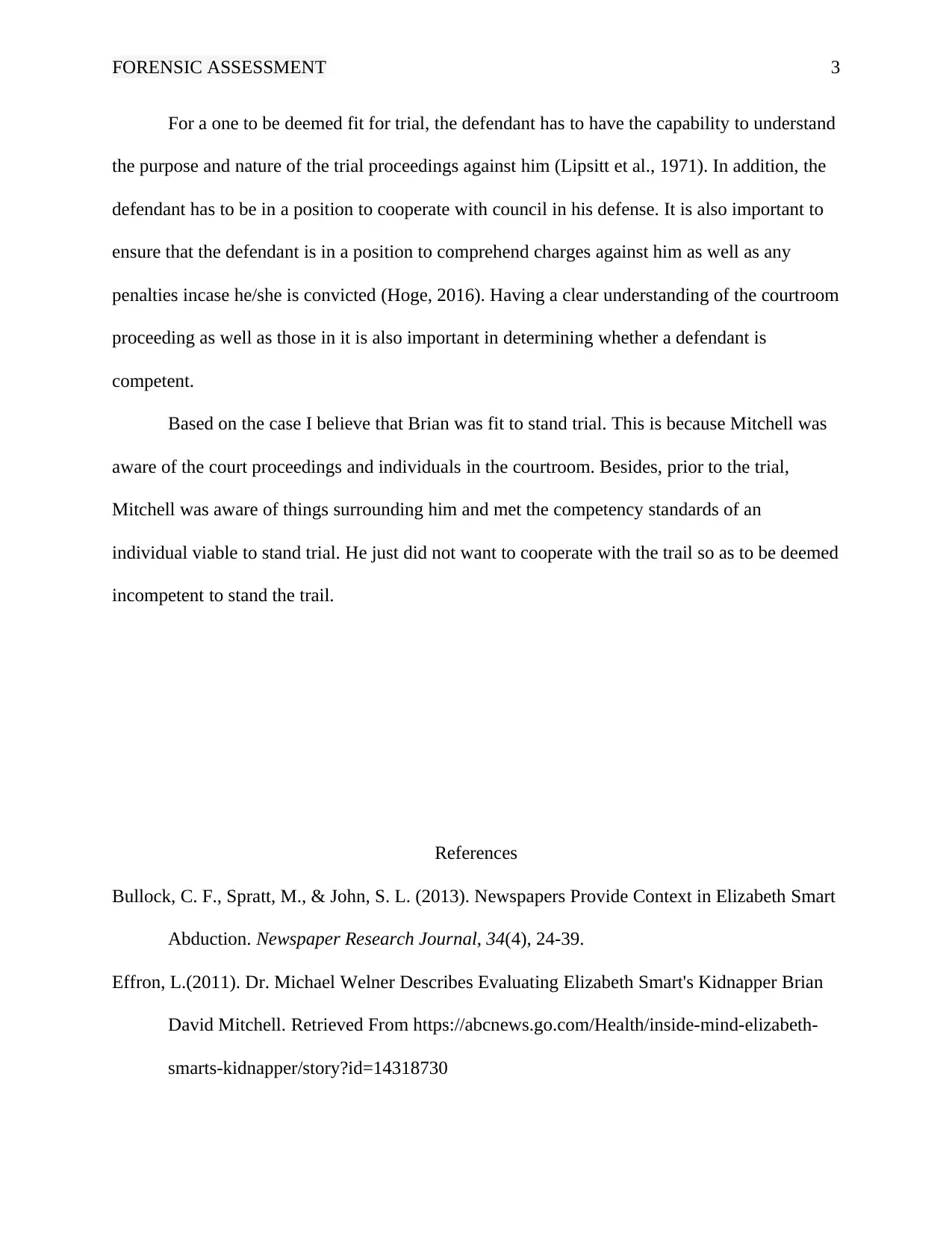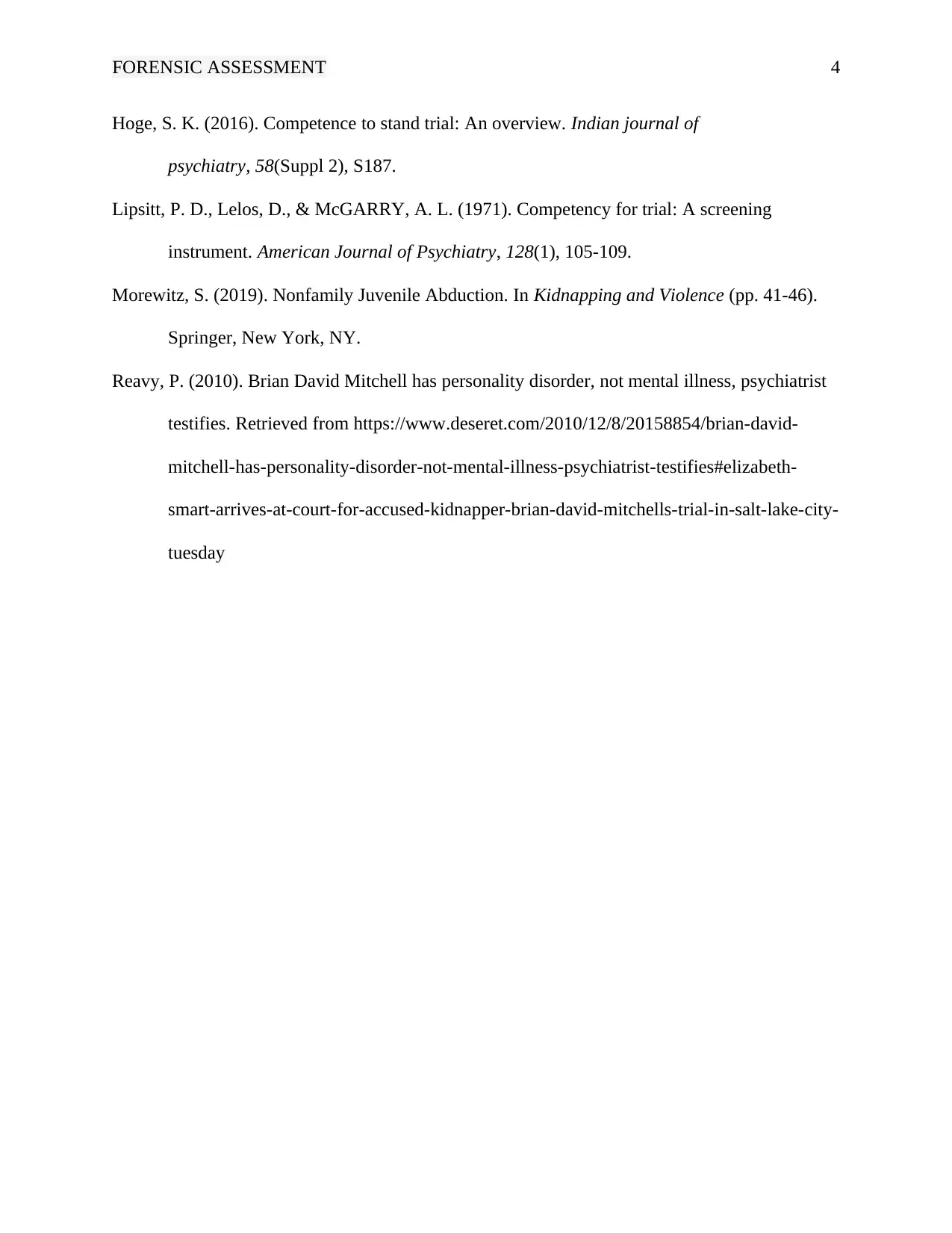Forensic Assessment Case Study: Brian David Mitchell Trial Analysis
VerifiedAdded on 2022/08/01
|4
|778
|171
Case Study
AI Summary
This case study analyzes the forensic assessment of Brian David Mitchell, the kidnapper of Elizabeth Smart. The assignment begins with a summary of the case, detailing Mitchell's kidnapping of Smart and subsequent trial. It highlights the initial declaration of Mitchell's unfitness to stand trial due to insanity, which was later overturned after a psychiatric evaluation by Dr. Welner. The assessment focuses on Welner's testimony, which asserted that Mitchell suffered from antisocial personality disorder, alcohol abuse, and psychopathic disorder but was still mentally competent to stand trial. The paper further discusses the importance of assessing a defendant's competency in the criminal justice system, including the criteria for determining fitness for trial, such as the ability to understand the proceedings and cooperate with counsel. The author concludes that Mitchell was fit to stand trial based on his awareness of the courtroom proceedings and his understanding of the situation, even though he did not cooperate.
1 out of 4






![[object Object]](/_next/static/media/star-bottom.7253800d.svg)